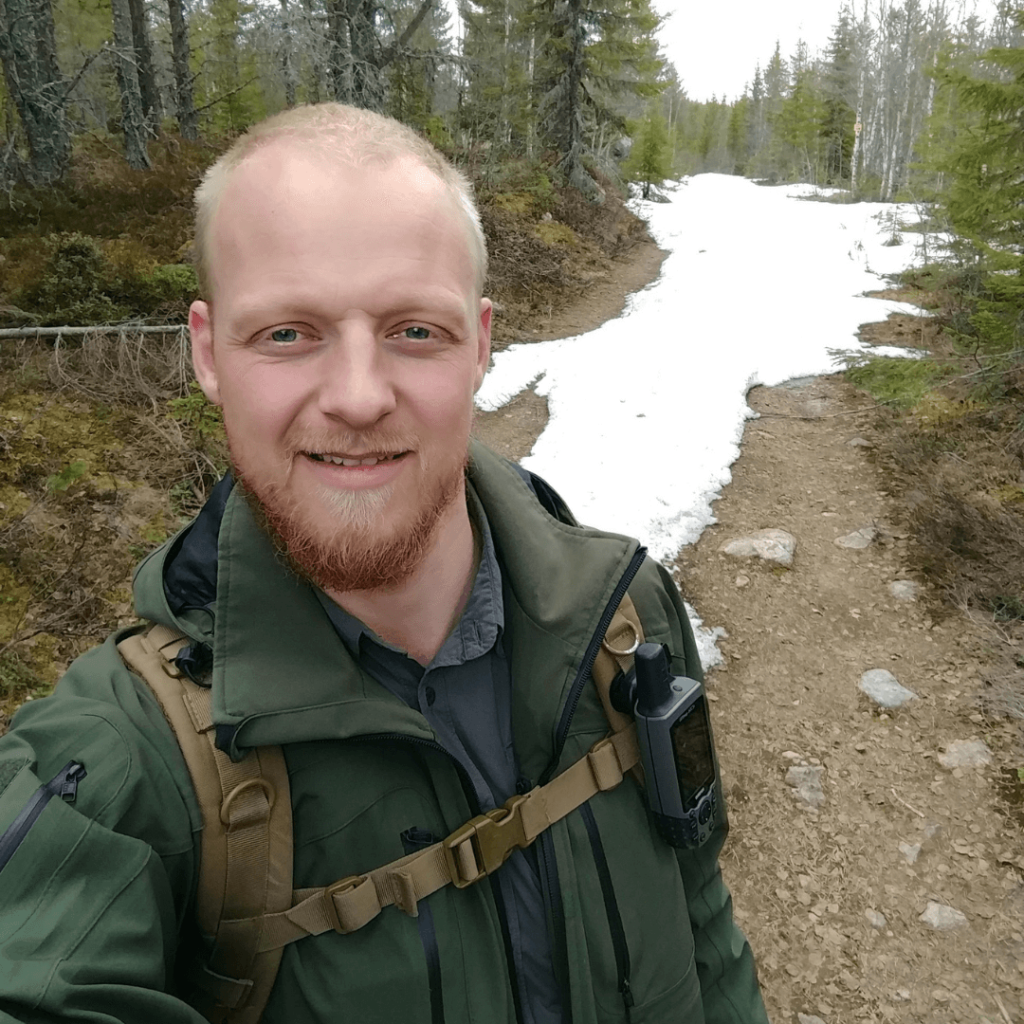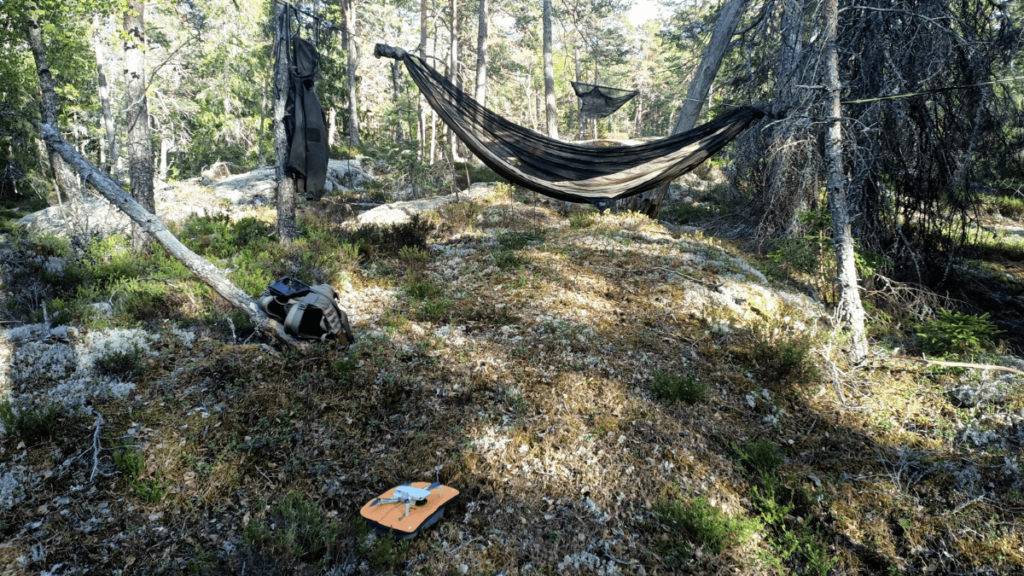The fact that rangers are not taken seriously becomes a problem if we want to protect at least 30 percent of the planet’s land and oceans by 2030. Sweden is a good example for announcing this 30 by 30 target without thinking about who is needed to implement it: rangers.
We talked to Adam J. Norton Turner, ranger for Stockholm Municipality and conservation biologist, about how he wants to achieve more recognition, effective qualification and cooperation of Sweden’s rangers by establishing a ranger association.
The Swedish Ranger Association has just started. How did it come to be founded?
After I was at the World Ranger Congress in 2019 where it was a lot about ranger associations, it just felt natural for me that establishing an association in Sweden would be the next step. There are many organizations in Sweden, but none of them cooperates with each other. So I was trying to register an organization group at Facebook under “Swedish Rangers” – but the name was already taken. That’s how I found out that Jonathan from Northern Ireland had the same idea. I called on another guy I know from England working in Sweden to join us in founding the association, which we did in August 2020: the Svenska Ranger- och Naturvårdsföreningen (SRNF). We were also trying to get Swedish rangers involved. But it seems that most do not really understand why they should be part of an association. We have Swedish members now, 20 in total, but they are not part of setting up the association regarding media, marketing, information and so on. So the ‘Why’ has been a bit of a problem for us.
What is your answer: Why should Swedish rangers be organized in an association?
Our idea is to raise the status and the name of rangers in Sweden, to share knowledge and information with each other. To have for example study trips where we go and visit each other and have a common meeting once a year in one of the national parks in Sweden. However, that’s difficult with only us three active. We also don’t have enough funding to organize ranger events. But on the other hand members are not willing to pay, if they don’t know what they will get.
What benefits do you see so far from founding the association?
I worked as a freelance ranger when I started the association and then got a fixed job by explaining to my employer what we were setting up, showing I was really into the ranger profession. Also the networking by going to the European Ranger Congress and getting more into contact here in Sweden is definitely a benefit. I am absolutely sure that founding the association will pay off a lot more, because there is a huge potential in this country with only 10 million people and three times the size of the UK, literally just forest. Three percent of the population have a hunting license and there are many other outdoor activities like trekking or camping, which have an extra name: “friluftsliv”.
“People in Sweden don’t really get why rangers get paid. They take nature for granted. That’s why I would like us to have events in public – like the next European Ranger Congress.”
Adam J. Norton Turner
But still many people out in the nature reserve ask me who I am and what I am doing. They don’t really understand why I get paid for walking around the nature reserve, picking up rubbish, fixing things and doing conservation stuff. I think they kind of take it for granted that nature is how it is. So when it comes to rangers, the education level of the public unfortunately still is quite low. That’s why I would like us to have events in public, where we rangers all turn up, have flyers, some sort of recognition like a uniform or at least badges. And it is also part of the reason why we want to be host of the next European Ranger Congress. People would see that there are rangers on a global scale, organized with uniforms and working together.
Does this lack of education cause problems in your daily work?
The worst problems we have are small building companies: They have to pay an environmental fee when they dump construction waste. So they dump it in nature reserves. But we never see them. Loose dogs in nature are another problem we do encounter often. Dogs have to be on a lead, but many people say their dog doesn’t hunt. They do not understand that dogs scare the wild animals away by running around. We also often have to deal with illegal fishing. It depends where in the country you are. Before I was working for a predatory inventory of wolves and had many encounters with people who were against wolves and didn’t like that we were doing the inventory. That is probably one of the biggest conflicts in this job.

“There is a lot of talk about increasing protected areas up to 30 percent in Sweden, but we don’t have the staff ready.”
Adam J. Norton Turner, ranger & co-founder of the Swedish ranger association SRNF
How do you tackle those conflicts?
Mostly people listen. But if they don’t, I can’t do anything about it. The Environmental Agency is able to issue a fine. I wished that we had a few more teeth, which is one thing we try to bring forward as an association. Rangers also are not involved in talks with local communities concerning conflicts with large predators, which I think is kind of sad. We are the ones out in the field to see things first hand, so we should have the qualifications and tools to deal with them. The only sort of authority is reserved for Conservation Officers. There is no more than one course per year for this certificate. I’ve been on the waiting list for years for the one coming up. So we were asking Stockholm County Council as a provider to install more courses to increase the number of rangers working as Conservation Officers. But we were not really taken seriously.
“Here in Sweden, we do not even have a certified training for rangers to have adequately qualified staff. A European standard to start with would be great.“
Adam J. Norton Turner
This shows that there is a lot of work for us to do as an association. We have to vamp up the amount of people working for us, the funding etc. to counter the lack of care about the ranger profession. There is a lot of talk about increasing protected areas up to 30 percent in Sweden, but we don’t have the staff ready. This is a problem around the world. But here in Sweden, we do not even have a certified training for rangers to have adequately qualified staff. It would be great, if there could be a European Certification endorsed by any European organization as a standard to start with.
editorial work for this
content is supported by


